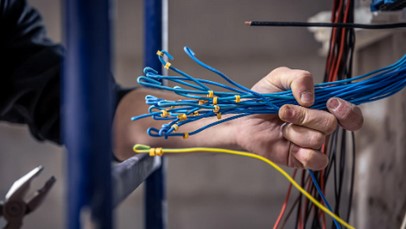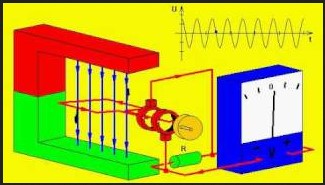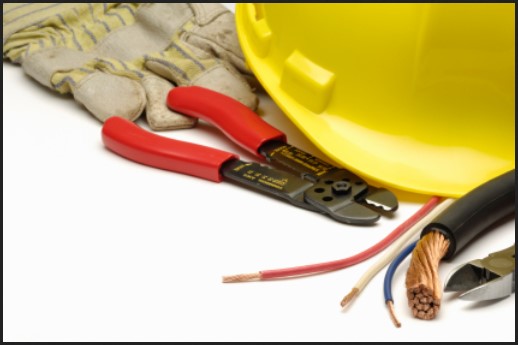
A home theater can elevate your entertainment experience, transforming your living room into a cinematic escape. Whether you’re a movie buff, a gaming enthusiast, or someone who enjoys binge-watching the latest series, creating the ideal home theater setup requires careful planning and the right equipment. Home theater installation tips for an immersive experience can help ensure that your setup not only looks great but also delivers superior sound, picture quality, and comfort. In this article, we’ll walk through essential tips and considerations for achieving the ultimate home theater experience.
1. Room Selection and Layout: The Foundation of Your Home Theater
The first step in installing a home theater is selecting the right room and determining its layout. The best room for your home theater should offer a combination of space, acoustics, and comfort. Let’s take a look at the key factors to consider when choosing a room:
Ideal Room Dimensions:
The size of the room plays a crucial role in how your sound and visuals will perform. A larger room provides more space for a bigger screen and more seating, but it also requires more powerful speakers and sound management solutions. On the other hand, smaller rooms can offer better acoustics and intimacy but may require smaller equipment to avoid overwhelming the space.
- Screen Size vs. Viewing Distance: The optimal screen size for your home theater depends on the viewing distance. A general rule of thumb is that the viewing distance should be about 1.5 to 2.5 times the diagonal size of the screen. For example, if you have a 55-inch TV, your ideal seating distance is between 6.5 and 11 feet.
- Ceiling Height: If you’re opting for a projector and screen setup, higher ceilings are beneficial, as they give you more flexibility with projector placement and ensure that the image can be displayed without obstruction.
Acoustic Considerations:
The shape of the room, wall materials, and whether the room has any reflective surfaces can all influence the quality of sound. Ideally, you want a room with minimal echo and controlled sound reflection. If your room has hard floors, consider adding carpets or rugs to absorb sound. Additionally, adding curtains, acoustic panels, or wall coverings can dramatically improve the room’s acoustics.
Furniture Layout:
The layout of your furniture should provide an optimal viewing angle. The seats should be facing the screen directly, with enough space for comfortable seating and good sightlines. Consider investing in theater-style seating or recliners for added comfort. If you’re working with a smaller room, consider a tiered seating arrangement, where the back rows are elevated to ensure everyone has a clear view of the screen.
2. Choosing the Right Equipment: Sound, Picture, and Peripherals
Once you’ve decided on the ideal room setup, the next step is choosing the right equipment for your home theater. The combination of a high-quality projector or TV, surround sound system, and media devices will significantly impact your viewing and listening experience.
Screen or TV:
- TV vs. Projector: When deciding between a TV and a projector, consider the size of the room, your budget, and the ambiance you want to create. A large-screen TV (60 inches or more) is often easier to install and maintain, while a projector offers a more immersive cinematic feel, especially when paired with a large screen. For the best picture quality, look for a 4K resolution TV or projector to ensure sharp, detailed images.
- Screen Type: If you opt for a projector, choosing the right screen is essential. Fixed-frame screens tend to provide better picture quality, while motorized screens offer convenience. Always ensure the screen is the correct size and properly positioned for optimal viewing.
Sound System:
The sound system is arguably the most critical aspect of creating an immersive home theater experience. The audio should match the quality of the visuals, with clear, powerful sound coming from all directions.
- Speaker Placement: Ideally, surround sound speakers should be placed at ear level and around the room, with the center speaker directly below or above the screen. The front-left, front-right, and subwoofer should be placed near the screen or on the floor. A 5.1-channel system (five speakers and one subwoofer) is a great entry-level option, while a 7.1 or even a 9.1 system can offer enhanced audio quality and a more immersive experience.
- Sound Calibration: Once the speakers are installed, be sure to calibrate them for optimal sound. Many AV receivers come with built-in sound calibration tools that can measure the room’s acoustics and adjust the speakers accordingly.
Media Devices:
Ensure that your home theater is equipped with a media player that can support 4K or even 8K content if your equipment supports those resolutions. A high-quality Blu-ray player, gaming console, or streaming device (like Roku or Apple TV) can provide you with access to a variety of entertainment options. Additionally, make sure that your receiver or soundbar has HDMI inputs to accommodate all of your devices.
3. Wiring and Installation: The Technical Side of the Setup
The wiring and installation process is a critical aspect of creating a seamless and visually appealing home theater. Proper cable management not only ensures that your system works effectively but also keeps your space clean and organized.
Concealing Cables:
When setting up your home theater, conceal the cables as much as possible to maintain a clean and modern aesthetic. Use cable raceways, wall-mounted trays, or in-wall speaker wiring for a neat appearance. For a more professional look, you can have an electrician or AV technician install in-wall outlets and run cables through the walls.
Wireless Options:
If you want to avoid the hassle of dealing with multiple cables, consider wireless options for your sound system, projector, and streaming devices. Many modern AV receivers, speakers, and even projectors offer wireless capabilities, reducing clutter and making installation much easier.
Power Considerations:
Ensure you have sufficient power outlets to support all of your equipment. Surge protectors or uninterruptible power supplies (UPS) are recommended to safeguard your gear against power surges. Also, keep in mind that high-end systems may require dedicated circuits for optimal performance, so consulting with an electrician is a good idea.
Achieving the perfect home theater setup requires careful planning, thoughtful design, and the right equipment. By following these home theater installation tips for an immersive experience, you can create a space that offers not just great visuals and sound, but also a comfortable and convenient space for enjoying your favorite movies, games, and shows. From selecting the ideal room and layout to choosing the best equipment and managing cables, every step plays a crucial role in ensuring that your home theater meets your entertainment needs. Whether you’re a tech enthusiast or a casual viewer, a well-designed home theater will enhance your viewing experience and provide years of enjoyment.


 Electrical energy is one of the most essential commodities in the world today. We use it in our homes, at work, on the streets, in hospitals and even schools. Without it, so many things would come to a standstill. Unfortunately, it happens every once in a while. The problem usually ranges from complex issues at the power plant to simple ones like a faulty switch. Nevertheless, regardless of the magnitude of the problem, it is always better and safe to seek professional help. Here is how you go about looking for the best technician to hire.
Electrical energy is one of the most essential commodities in the world today. We use it in our homes, at work, on the streets, in hospitals and even schools. Without it, so many things would come to a standstill. Unfortunately, it happens every once in a while. The problem usually ranges from complex issues at the power plant to simple ones like a faulty switch. Nevertheless, regardless of the magnitude of the problem, it is always better and safe to seek professional help. Here is how you go about looking for the best technician to hire.

